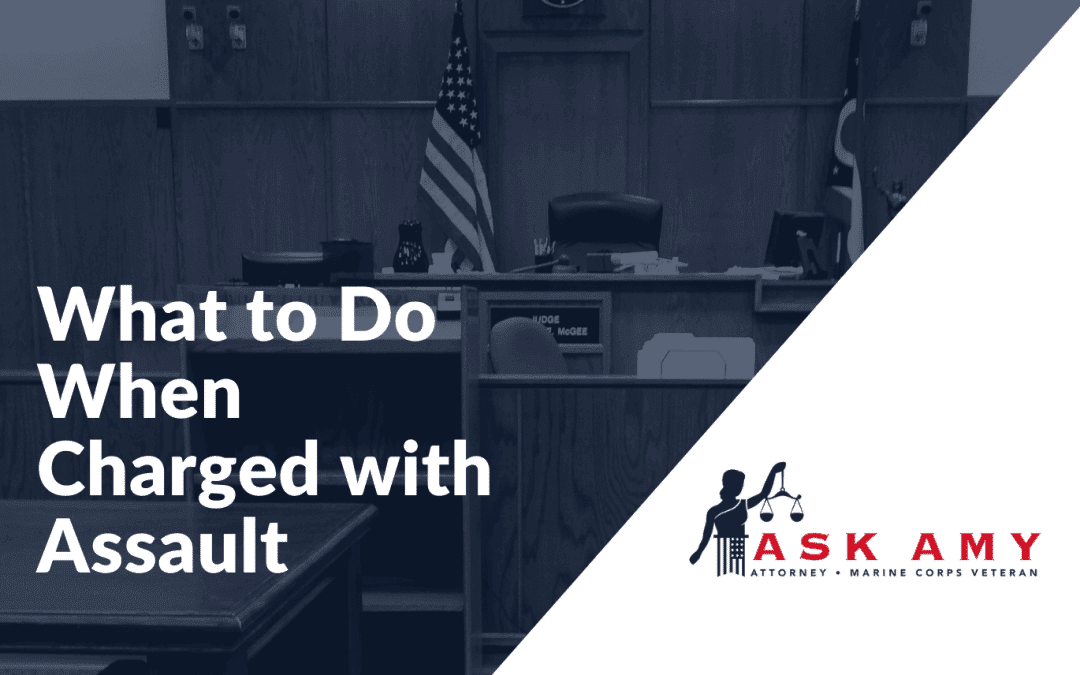If I’m facing a charge for domestic or simple assault, what should I do?
First, it is important to remember that a charge of domestic or simple assault is a very serious offense. Often, courts are not offering plea deals to make these offenses “go away” or stay off your permanent record. As a result, your defense should be taken as seriously as the charge at hand. You will need representation from an attorney to ensure your interests are being well-represented and defended.
Jail Time and Fines for Assault:
The punishment for simple assault is up to six months in prison and a fine up to $500.00, or both. You may also have to pay restitution to the alleged victim if you are convicted. That could include medical bills or paying reimbursement for any loss of personal property.
Assault charges and gun ownership:
This type of charge is a misdemeanor and if you are found guilty there are long-ranging consequences, including losing your right to carry a gun.
The 1968 Gun Control Act and its amendments, (found at 18 U.S.C. Section 921 et seq.), make it a crime for anyone convicted of: a felony, and/or anyone subject to a domestic violence protective order, and/or anyone convicted of a misdemeanor crime of domestic violence, from having in their possession a firearm.
The intent of this legislation was to provide a tool for law enforcement to remove a firearm from a potentially unsafe domestic situation. It also prohibits ownership of a firearm from someone already showing a propensity for violence with a prior conviction of domestic violence; these reasons are the legislative intent behind prohibiting possession of a firearm; all thought to potentially deescalate a deadly situation.
“Your defense should be taken as seriously as the charge at hand.”
WHY WOULD I BE CHARGED WITH SIMPLE OR DOMESTIC ASSAULT?
In many cases I see, it begins with a disagreement between a couple. When that situation escalates to the point where there are safety concerns, the police are often called by one of the parties or a concerned neighbor. This is not the only reason, but it is one of the most common examples we see.
What qualifies as simple assault?
“The alleged victim doesn’t necessarily have to have a serious injury for you to be found guilty of assault. There doesn’t have to be injury at all.”
What many might consider harmless actions can be determined as assault in a court of law. Assault is defined as an intentional act that creates apprehension or fear in another person with imminent harm or offensive contact. In other words, it is the threat of bodily harm with the apparent ability to cause said harm. The outcome of the assault does not determine whether it rises to the definition of assault. Therefore, the alleged victim doesn’t necessarily have to have a serious injury for you to be found guilty of assault. There doesn’t have to be any injury at all – the mere threat and the ability to carry it out qualifies as simple assault.
For example, if you throw a cell phone at your significant other or family member and the cell phone nearly misses them or brushes them lightly, that qualifies as assault. It could be the case that you pushed a person out of frustration or knocked their glasses off their face, and they suffered no apparent injuries. All of these could qualify as assault. More violent offenses, such as slapping and punching, are also assault.
If you find yourself facing these charges, do not think the court will dismiss the charges because you have reunited or made amends with your significant other, or the person harmed. The courts are not always prone to dismiss the charges. Get a criminal defense attorney like this firm to assist in your defense.
If you have additional questions about assault charges in the states of Mississippi or Tennessee, contact attorney Amy Pietrowski.



Recent Comments